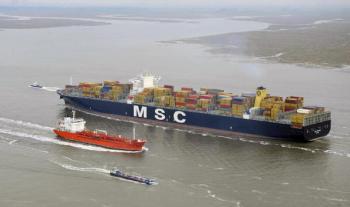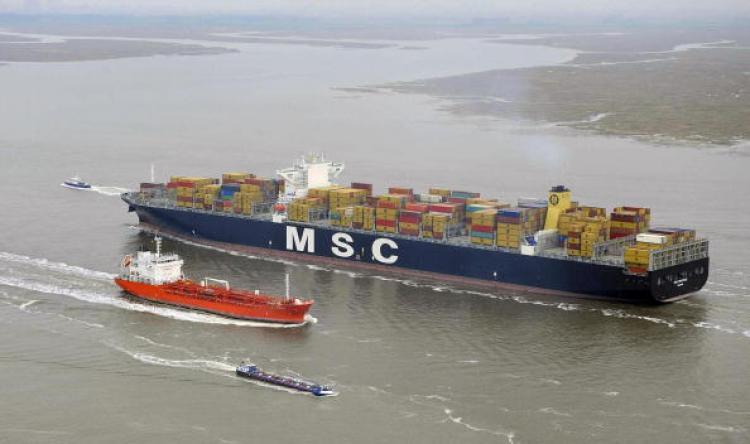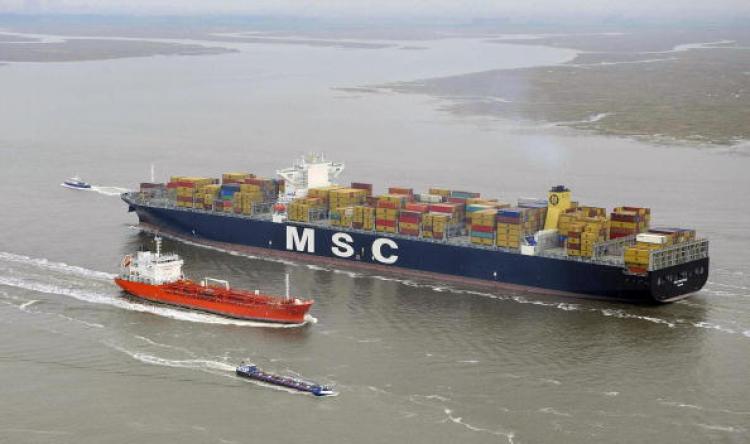BRUSSELS—Tensions between the Netherlands and Belgium eased last week after the Dutch Minister of Foreign Affairs, Maxim Verhagen, assured his Belgian counterpart that the Netherlands would keep its promise of deepening the Western Scheldt without delay.
The Western Scheldt is an estuary of the Scheldt River and an important shipping route to the Port of Antwerp in Belgium. Deepening it will enable large sea ships to pass.
A treaty signed by both countries in 2005 stipulates that the passage shall be over 13 meters (about 43 feet) deep by January 2010. Yet a delay, which the Dutch say was caused by protests from environmental organizations, made the Belgians question whether the Dutch would keep their promise and meet the deadline.
”A deal is a deal. We will make sure that the enlargement of the Western Scheldt will happen without delay,” said Dutch Minister Maxime Verhagen last week.
The limited depth of the Western Scheldt passage, which runs over Dutch territory, makes it difficult for large sea ships, depending on the tide, to reach port.
The Belgian government says it’s missing out on 70 million euros in revenues each year because large sea ships move to the Dutch port of Rotterdam, currently the largest port in Europe.
Belgian Foreign Affairs Minister Yves Leterme said he is very pleased to hear that the Dutch government is planning to keep its promise.
“We are neighbors when we live next to each other. We are friends when we have a good cooperation with each other, and we are good friends when we keep our promises,” Yves, the Belgiam Foreign Affairs Minister was reported as saying in the media.
The treaty of London of 1839, in which the Netherlands recognized the independence of Belgium, contains an article ensuring that the Netherlands will keep the Western Scheldt open at all times, giving ships a free passage to the port of Antwerp.
There have been frictions ever since about the costs of dredging and enlarging the Western Scheldt. In the 1970s, environmental issues posed an additional challenge.
The Western Scheldt is an estuary of the Scheldt River and an important shipping route to the Port of Antwerp in Belgium. Deepening it will enable large sea ships to pass.
A treaty signed by both countries in 2005 stipulates that the passage shall be over 13 meters (about 43 feet) deep by January 2010. Yet a delay, which the Dutch say was caused by protests from environmental organizations, made the Belgians question whether the Dutch would keep their promise and meet the deadline.
”A deal is a deal. We will make sure that the enlargement of the Western Scheldt will happen without delay,” said Dutch Minister Maxime Verhagen last week.
The limited depth of the Western Scheldt passage, which runs over Dutch territory, makes it difficult for large sea ships, depending on the tide, to reach port.
The Belgian government says it’s missing out on 70 million euros in revenues each year because large sea ships move to the Dutch port of Rotterdam, currently the largest port in Europe.
Belgian Foreign Affairs Minister Yves Leterme said he is very pleased to hear that the Dutch government is planning to keep its promise.
“We are neighbors when we live next to each other. We are friends when we have a good cooperation with each other, and we are good friends when we keep our promises,” Yves, the Belgiam Foreign Affairs Minister was reported as saying in the media.
The treaty of London of 1839, in which the Netherlands recognized the independence of Belgium, contains an article ensuring that the Netherlands will keep the Western Scheldt open at all times, giving ships a free passage to the port of Antwerp.
There have been frictions ever since about the costs of dredging and enlarging the Western Scheldt. In the 1970s, environmental issues posed an additional challenge.





